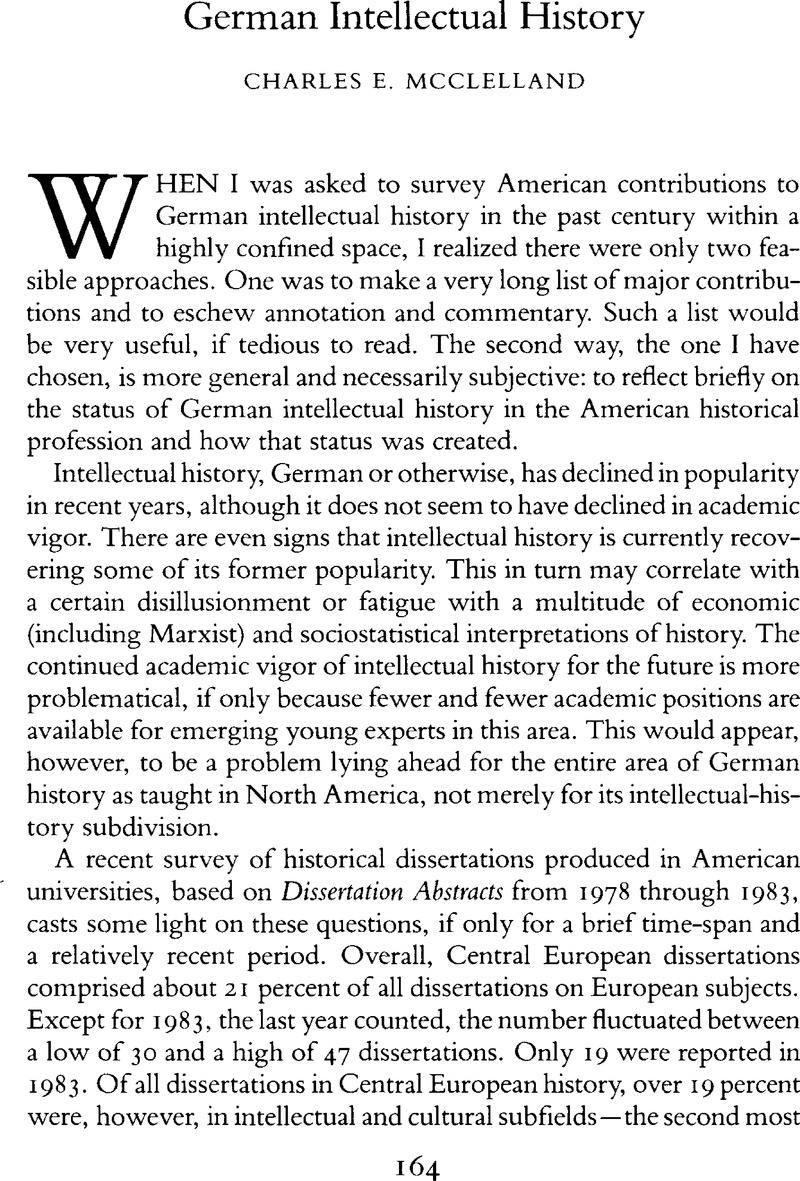Published online by Cambridge University Press: 16 December 2008

1. Teske, Boris A., “Recent Dissertations in Central European History,” Conference Group for Central European History, Newsletter (04, 1985), 13–15.Google Scholar
2. According to the editor, who used a rather broad definition, from 1968 through 1977 16 percent of the articles published dealt with intellectual history. From then through the current issue the proportion is 30 percent.
3. Krieger, Leonard, “European History in America,” in Higham, John et al. , History: The Development of Historical Studies in the United States (Princeton, 1965), 238–67.Google Scholar
4. Coser, Lewis A., Refugee Scholars in America (New Haven, 1984), 278.Google Scholar
5. Cf. Diehl, Carl, Americans and German Scholarship, 1770–1870 (New Haven, 1978).Google Scholar
6. Hughes, H. Stuart, The Sea Change: The Migration of Social Thought, 1930–1963 (New York, 1975), 1.Google Scholar
7. Ibid., 2.
8. Coser, Refugee Scholars, 278. Quantifiable biographical information, at least for the Jewish emigration from Germany, is only now being published as a first result of a massive project of the Bavarian Academy of Sciences; see also Strauss, Herbert A., ed., Jewish Immigrants of the Nazi Period in the USA (New York, 1985).Google Scholar
9. Fermi, Laura, Illustrious Immigrants: The Intellectual Migration from Europe, 1930/41, 2d ed. (Chicago, 1971), 347.Google Scholar
10. One thinks of such perverse classics as Peter Viereck's Metapolitics: The Roots of the Nazi Mind (New York, 1941)Google Scholar or William Shirer's perennially republished Rise and Fall of the Third Reich.
Boyers, Robert, ed. The Legacy of the German Refugee Intellectuals (New York, 1972).Google Scholar
Faulenbach, Bernd, ed., Geschichtswissenschaft in Deutschland (Munich, 1974).Google Scholar
Jackman, Jarrell C. and Borden, Carla M., eds., The Muses Flee Hitler (Washington, D.C., 1983).Google Scholar